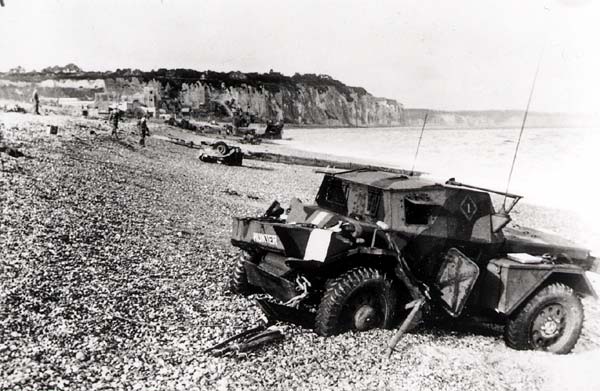Before he was Ian Fleming, author of the James Bond novels, he was Commander Fleming, an intelligence officer in the Royal Navy and right-hand man to Admiral John Godfrey, Director of British Naval Intelligence. As such, Fleming was responsible for the creation of what came to be known as Assault Unit 30 (AU 30), a top-secret British commando unit specifically formed to gather intelligence. Fleming proposed the concept of AU 30 to Admiral Godfrey in a March 10, 1942 memo titled, "Proposal for Naval Intelligence Commando Unit."
The idea for AU 30 came out of a British intelligence crisis happening in 1942 for which Fleming sought a solution. Code-breaking specialists working in a secret location in Buckinghamshire called Bletchley Park had had - until 1942 - great success breaking coded messages sent by German Enigma Code machines. The Enigma machines had been invented by a German scientist, and the Germans wrongly believed the codes from Enigma machines were unbreakable. Essential to the war effort, the intelligence from the code-breakers of Bletchley Park kept British forces informed about the latest German military tactics. However, in 1942 the Germans advanced their technology, upgrading the Enigma machine to a 4-rotor wheel and leaving Bletchley Park code-breakers in the dark.

A hotel in the town of Dieppe had been serving as the base for Nazi operations, and a German radar station was located in the cliffs around the port. The Dieppe Raid was 30 Assault Unit's very first mission; the hotel and the radar station were their primary targets. However, they were unsuccessful. Ironically, and perhaps tragically, a mere two weeks following the raid, the Bletchley Park code-breakers were able to break the new German Enigma codes without the cipher code books and spare parts housed in Dieppe.
Despite the nonsuccess of the Dieppe Raid, both Winston Churchill and Lord Mountbatten defended the raid years later saying that the lessons learned at Dieppe ultimately led to the victory of D-Day. Even though their first mission failed, Assault Unit 30 had great success throughout the rest of World War II, participating in both the invasion of Normandy and the liberation of Paris.











